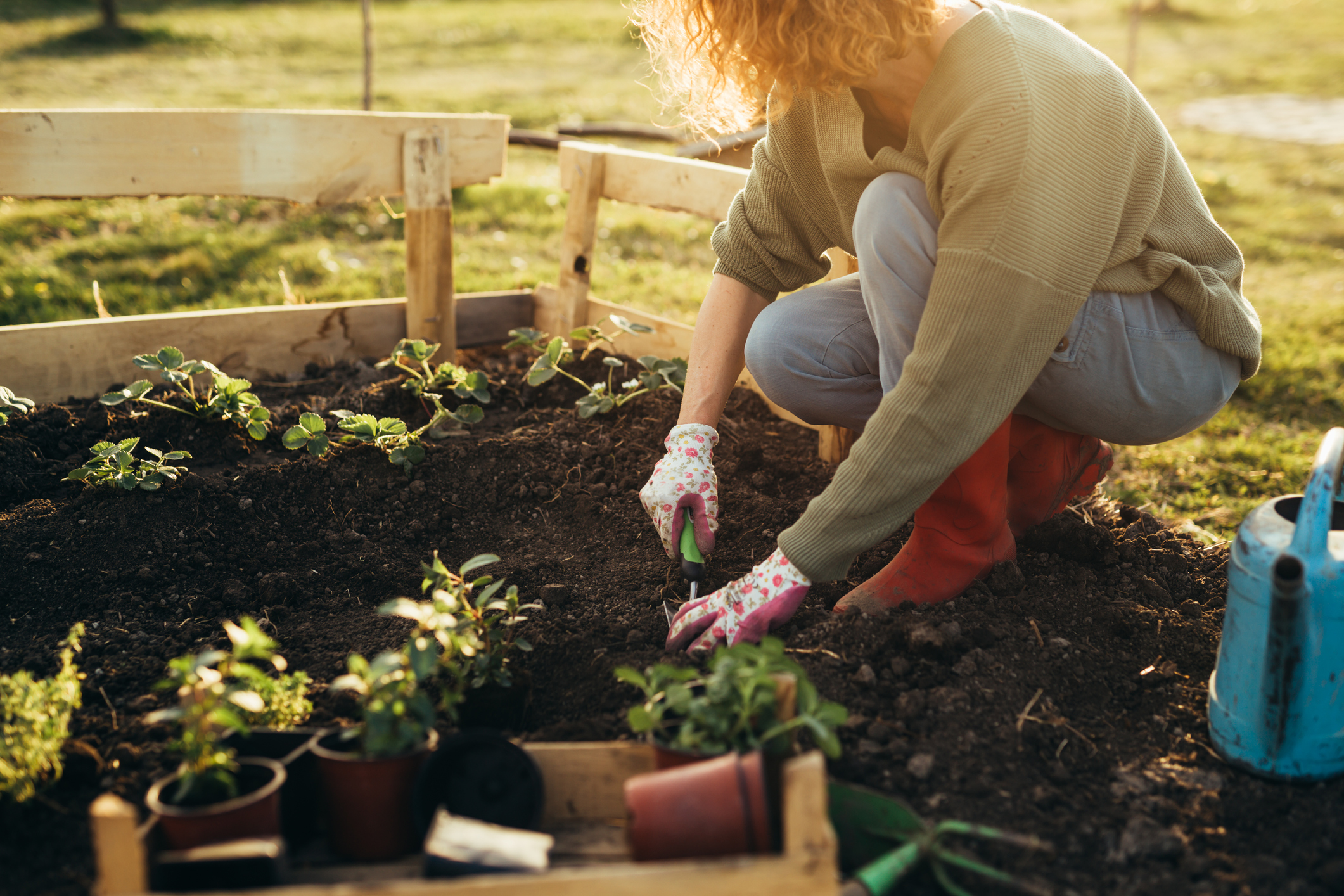Keeping your garden safe for all ages helps increase usability, K-State horticulture expert says
Gardening provides a variety of wellness benefits for all ages. Varied abilities among gardeners means adaptations to traditional practices are necessary to keep gardeners safe and successful, regardless of age.
Kansas State University horticulture expert Cynthia Domenghini said gardeners can focus on three areas: tasks, tools and design.
Tasks
If you’re gardening with a child, plan to spend plenty of time exploring and learning alongside them, Domenghini said. If time is limited, save these tasks for more experienced helpers or independent gardening.
“Hire a crew or seek other help to complete tasks in a more timely manner,” Domenghini said. “Make a list of the tasks that need to be accomplished each day and complete them in an order that varies the movements.”
Spending hours kneeling and weeding is going to put strain on joints, which can result in long-term damage. Domenghini recommended spending 15 minutes weeding each day followed by a task that requires different movement and posture.
“Supplement your harvest by visiting the farmers market,” Domenghini said. “You can grow less and do good by supporting local farmers.”
She also suggests observing the garden from a different perspective.
“Identify ways to improve accessibility, such as increasing the raised beds to standing height,” Domenghini said.
Other tasks include:
- Minimize maintenance.
- Select plants recommended for your area.
- Use automatic irrigation or a soaker hose to reduce the amount of time spent watering.
- Limit the garden size.
Tools
Proper maintenance of tools is important. Domenghini said a few ways to care for tools is by keeping pruning tools sharp so less effort is required to make each cut, and keeping wooden handles free from splintering.
“Use lightweight tools such as those made with plastic, carbon, fiber or aluminum handles,” Domenghini said. “Handle the tools prior to purchasing to ensure they are a good fit.”
Most gardeners prefer lightweight tools with a long handle as this prevents bending over to work and adding strain to the back. Short-handled tools may be a better fit for gardening while seated.
“Kneeling pads and benches can protect joints while also reducing soil compaction,” Domenghini said. “Rolling garden seats allow the gardener to sit while weeding and planting.”
Invest in a good pair of gloves that will accommodate any gardening task to protect you from cuts and the potential for infection, Domenghini said.
Store tools in a central location and avoid leaving tools out where they can become a trip hazard. Also, unplug power tools and never leave tools unattended when gardening with children.
“It is important for young gardeners to learn tool safety, which includes supervision,” Domenghini said.
Design
Garden pathways should be kept smooth and level to reduce the risk of falls.
Sign up for HPJ Insights
Our weekly newsletter delivers the latest news straight to your inbox including breaking news, our exclusive columns and much more.
“Window boxes, raised beds and a multitude of container types facilitate gardening while standing or seated,” Domenghini said. “Keep the size of planters less than three feet across to reduce the need for reaching. All points in this size planter can be reached with short-handled tools.”
Domenghini said the garden should allow for rest and relaxation. She suggests placing a comfortable seat in a shaded area of the garden.
“On days that are predicted to be warm, do garden work in the early morning hours,” Domenghini said.
Bringing your phone with you to the garden is important, especially if you garden alone in case you need help or assistance. But, she says, also bring a book to encourage taking a break, and do some reading in the shade.
“There are many considerations to make when designing a garden that is safe for everyone,” Domenghini said.
Domenghini and her colleagues in K-State’s Department of Horticulture and Natural Resources produce a weekly Horticulture Newsletter with tips for maintaining home landscapes and gardens. The newsletter is available to view online or can be delivered by email each week.
Interested persons can also send their garden and yard-related questions to Domenghini at [email protected], or contact your local K-State Research and Extension office.




